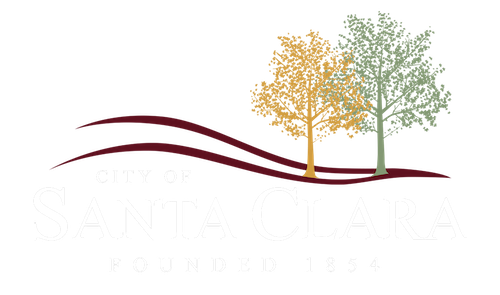
Justice Court
Forms
Pay Online
If you’re trying to pay court citations, follow the button below:
“The mission of the Court is to provide the people an open, fair, efficient and independent system for the advanced of justice under the law.”
The Santa Clara Justice Court servies the cities of Santa Clara and Ivins, Utah. The court has jurisdiction to adjudicate infraction class B, and class C misdemeanor cases, and small claims of $15,000 or less. Court hearings are held in-person unless a person has submitted a motion and it has been granted to appear by Webex. The judicial staff is approachable and available to answer your questions. Court proceedings are open, and the public is always welcome to attend a session.
| Provider | Address | Phone |
|---|---|---|
| AAA Prime Drug & Alcohol Course | 1240 E 100 S BLDG 23 #202J, St George | 435-429-4020 |
| Ascend Counseling | 1173 S 250 W BLD 1 Suite 208, St George | 435-688-1111 |
| Four Points Health (Paiute Tribe) | 1449 N 1400 W #19, St George | 435-688-7572 |
| *High Desert Counseling | 561 East Tabernacle, St George | 435-673-2899 |
| Hope Rising Detox and Rehabilitation | 671 S 1000 E, St George | 435-215-7533 |
| Horizon House | 54 N 200 E, Cedar City | 435-865-6481 |
| Lions Gate Recovery | 260 W St George Blvd, St George | 866-471-9476 |
| Paiute Tribe of Utah | 440 N Paiute Dr, Cedar City | 435-586-1112 |
| *Premier Counseling & Evaluation Services | 192 E 200 N #101, St George | 435-610-1696 |
| Renaissance Recovery | 491 E Riverside Dr #1A, St George | 435-703-9840 |
| *St George Integrated Counseling & Wellness | 1173 S 250 W BLDG 1 STE 208, St George | 435-688-1111 |
| Steps Recovery Center | 1085 S Bluff St, St George | 435-674-9999 |
| Southwest Center | 474 W 200 N #100, St George | 435-634-5600 |
| Therapy Associates | 166 N 300 W #1, St George | 435-862-8273 |
| UtahDUICLASS.com | PO Box 912, Salt Lake City | 801-474-9669 |
*Domestic Violence Certified Provider
Private Supervised Probation Agencies
| Agency | Address | Phone |
|---|---|---|
| AMP Probation | 1031 S Bluff St #208, St George 415 N Main St #101-9, Cedar City | 801-903-2626 |
| Professional Probation Service | 321 N Maill Dr #B102, St George 2390 W Highway 56, Cedar City | 435-359-4450 435-215-7922 |
| Guardian Probation Services | 334 W Tabernacle #J, St George | 435-668-5246 |
| Red Rock Private Probation | Mobile Service, St George | 360-903-2843 |
Community Service
| Organization | Address | Phone |
|---|---|---|
| Five County Community Action | 1070 W 1600 N BLDG. B, St George | 435-674-5757 |
Last updated: 24 September
- The Utah Expungement Act governs how to expunge records of an arrest or conviction in Utah, regardless of when a person was arrested or convicted.
- Expunging a criminal record does not change history; expunging a record means that the court orders the records of the arrest, investigation, detention and conviction in the criminal case sealed. Sealing a record means that the public cannot view or copy the record. Conviction includes a verdict or finding of guilty after trial, a plea of guilty, or a plea of nolo contendere (no contest).
- If an agency does not receive the expungement order, they are not required to seal their records. A government agency that has received an expungement order will respond to an inquiry as though that arrest or conviction did not occur. A person who has had records expunged may respond to an inquiry as though that arrest or conviction did not occur. The order to seal records applies only to government agencies. Other records, such as news accounts of an arrest or conviction, are not affected.
- After a record is expunged, an agency’s sealed records can still be viewed and copied by some government officials, and the court can order the records unsealed under some conditions.
- Although the records being expunged are criminal records, the petition to expunge is a civil case. In proceedings to expunge a record, the defendant in the criminal case is the petitioner in the expungement case.
- https://legacy.utcourts.gov/howto/expunge/ for more information on Expungements click the link.
- Mandatory Appearance – You must make an appointment unless the Defendant had insurance on the date of the violation. Then they must provide a letter of proof to the court, on insurance letterhead, signed and dated.
- No Insurance Cards will be accepted.
Explore Common Resources
Announcements & Additional Information

City Hall Hours
Monday – Thursday:
8:00am – 5:00pm
Friday:
8:00am – 1:00pm
Justice Court Hours
Monday – Thursday:
8:00am – 5:00pm
Friday:
8:00am – 11:00am
After Hours Emergency
Please call the main line at 435-673-6712.
The after hours service will collect the necessary information and contact the proper department’s
on-call person.